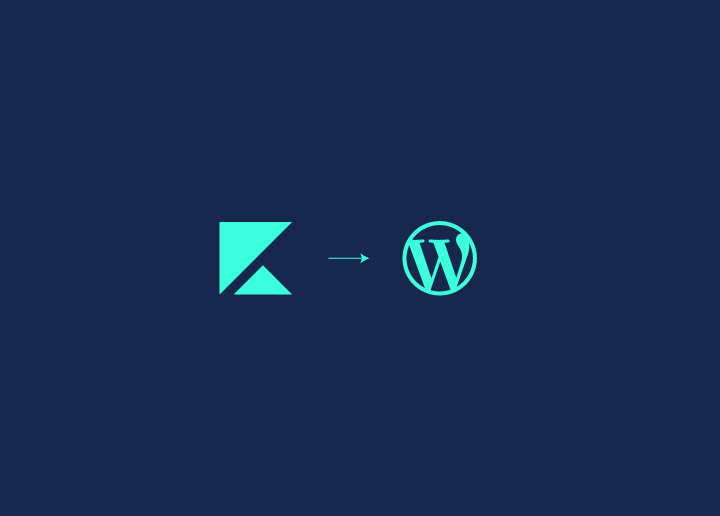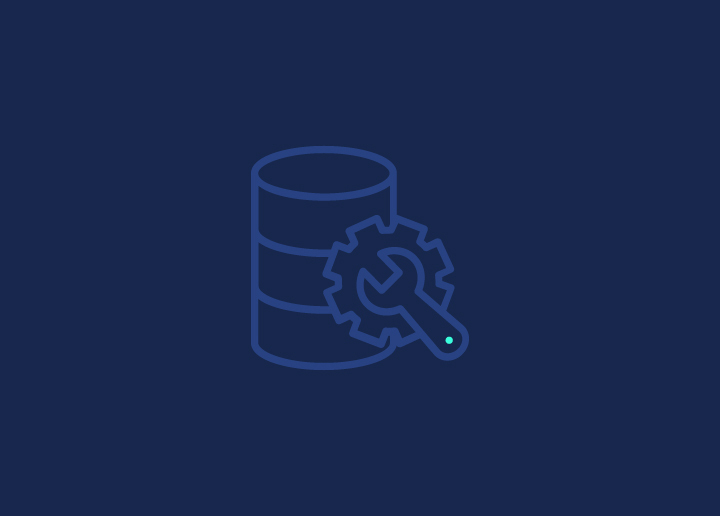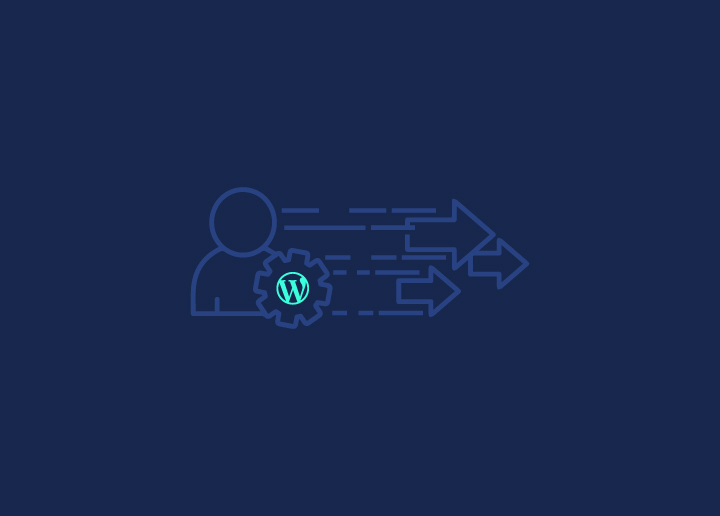If you want to migrate from Kajabi to WordPress, we’ve got you covered. We’ll show you the steps to transfer your content and make the transition seamless. Learn about the customization, backing up your Kajabi data, and setting up your new site on WordPress in no time.
Key Points
- Migrating from Kajabi to WordPress is about having control over content and business. WordPress offers more customization options, functionality, and scale, and it is easy to use.
- Moving content from Kajabi to WordPress can be done manually or with automated tools. All data must be transferred, especially media files, for content to remain intact and the transition to be smooth.
- After migration, setting up a WordPress site means purchasing good hosting, choosing a responsive theme, and using the necessary plugins to add functionality.
Contents
ToggleUnderstanding the Shift: From Kajabi to WordPress
The shift from Kajabi to WordPress represents more than just a platform change; it’s about gaining control and customization. While both Kajabi and WordPress offer drag-and-drop editors (WordPress through page builders like Elementor), the similarities end there.
Kajabi provides an all-in-one solution that’s simple to use, making it appealing for beginners. However, its limitations in flexibility and customization often prompt users to compare Kajabi with alternatives like WordPress.

WordPress, on the other hand, is known for its expansive customization capabilities. With a broad array of plugins and themes, users have complete control over their website’s functionality and design. This flexibility allows for unique branding and enhanced SEO capabilities, which can significantly impact your business growth.
Why Consider Migrating from Kajabi to WordPress?
One primary reason to make the switch is if you need enhanced control over your content and business. WordPress offers a broader range of customization options, enabling you to tailor your site exactly to your needs. Unlike Kajabi, which limits the number of integrations, WordPress allows for extensive integration with other tools and platforms, greatly expanding your capabilities.
For many users, the switch to WordPress is driven by the desire for a platform that grows with their business. As you scale, the ability to customize and optimize every aspect of your site becomes increasingly valuable. WordPress provides the tools and flexibility needed to support this growth, making it a preferred choice for many content creators and business owners.
Thinking about Migrating from Kajabi to WordPress?
Seek professional help for website migration to save time & money and avoid data loss with expert guidance.
Kajabi to WordPress: Preparing for the Move
Before diving into the migration process, preparing your Kajabi account for the move is crucial. This involves backing up all your course content, customer information, and third-party integrations to prevent data loss.
Migrating Content: Seamless Transfer Techniques
Migrating from Kajabi to WordPress can be overwhelming, but with the right methods, it’s easy. There are two ways to migrate:
- Manual transfers
- Automation through Migration plugins
Manual migration is exporting from Kajabi and importing into WordPress. It is time-consuming but gives you complete control. Whereas, Automated plugins can swiftly transfer large amounts of data without any hassle. You can also hire WordPress developers for secure migration.
Exporting Kajabi Content
Exporting your content from Kajabi is the first step in the migration process. Kajabi offers an export functionality that facilitates the transfer of course content, digital products, and other data.
To create a course backup, including product details, you can export a Course Product Template to your computer or another storage device. Additionally, taking screenshots of your Kajabi course content can serve as a visual reference to address any layout issues after migration.
It’s important to ensure that all your data, including customer information and third-party integrations, is backed up correctly. This precautionary step helps prevent data loss and ensures that you have everything you need to recreate your course content on your new WordPress site.
Importing to WordPress
Once you have exported your content from Kajabi, the next step is to import it into WordPress. This can be done using a migration tool with the file exported from Kajabi, which facilitates the data transfer.
Depending on your server access and the size of your site, you may choose between automated migration methods and performing the migration manually. Both methods have advantages, but a migration tool can significantly streamline the process.
An important consideration during the import process is the transfer of media files. An XML file used for importing content into WordPress contains links to media files, so the source site must remain online until all media has been successfully transferred.
Ensuring that all media files are appropriately imported is crucial for maintaining the integrity of your course content on your new WordPress site.
Read: How to Create a WordPress Website
Setting Up Your New WordPress Site
With your content safely imported, it’s time to set up your new WordPress site. The first step is choosing a reliable hosting provider that specializes in WordPress. This will ensure optimal site performance and access to one-click WordPress installation for ease of setup.

Next, you’ll want to select a WordPress theme that represents your brand identity and caters to the functionality required for your online business. Finally, installing essential plugins will extend the functionality of your site, such as eCommerce, membership, and SEO optimization features.
Choosing a Hosting Provider
Selecting a hosting provider is a critical decision that affects your site’s performance, cost of operation, and flexibility. Considering factors such as server reliability, customer support, scalability, and a user-friendly interface is also essential. Recommended hosting providers for WordPress sites include:
Each offering unique features suitable for online courses and academies.
When choosing a web hosting provider, look for features like:
- Uptime guarantee
- Advanced options such as backups, SSL certificates, etc.
- Advanced security options like DDoS attack prevention, malware scanning, etc
These features ensure that your site remains secure and capable of handling the needs of your growing online business.
Installing WordPress and Selecting Themes

Most hosting providers offer a one-click process to facilitate easy WordPress installation, making the setup quick and straightforward. Once installed, you can select a theme that fits your brand. You can also choose premium WordPress themes, which are vetted through a strict review process and adhere to coding standards. You can then customize site elements such as colors, header images, and widget locations from the WordPress dashboard.
Plugins for Enhanced Functionality
Installing essential WordPress plugins can enhance your site’s functionality. MemberPress is a versatile plugin offering customizable platforms with one-click add-on installations and flexible subscription levels, which include integrated payment solutions. It also provides content protection, teaser previews, and drip content features.
LearnDash supplies a complete eLearning package with features such as content dripping, easy payment method setup, and diverse lesson and testing formats for course creation on WordPress. These plugins and WordPress’s extensive integration capabilities allow you to connect over 60,581 free plugins with third-party applications and services.
Designing Your WordPress Online Course Website
Designing a WordPress online course website involves creating unique branding, engaging course layouts, and effective landing pages. Unlike Kajabi, which has limited templates, WordPress offers unlimited unique designs that lead to homogeneous site designs.

Plugins like LearnDash and Academy LMS Pro have features such as quizzes, media integration, and tracking student progress, which are essential for building engaging and functional online courses.
Related: LearnDash Review: The Best WordPress LMS Plugin
Building Landing Pages
Creating effective landing pages is crucial for marketing funnels. WordPress offers a variety of page builder plugins for this purpose, including:
- Elementor
- SeedProd
- Beaver Builder
These tools enable the creation of landing pages without the need for programming skills. They also ensure high conversion rates through customizable designs, mobile responsiveness, and templates. Using these plugins, you can design landing pages that are not only visually appealing but also optimized for conversions. This functionality is essential for driving traffic and increasing engagement with your online courses.
Know more about: Elementor Vs SeedProd: Detailed Comparison
Customizing Course Layouts
Customizing course layouts on WordPress can significantly enhance the presentation of your course content. Themes tailored for online course websites, combined with plugins like WooCommerce and MemberPress, offer flexible control over course creation, content management, and scheduling for content dripping, making it easier to sell online courses.
MemberPress allows for the creation of upsells and ‘thank you’ pages, improving the delivery of courses to members and enhancing the overall user experience. By leveraging these customization capabilities, you can create a professional and engaging online course website that stands out.
Also read: Best Course Management Systems & Platforms
Be the Best in the LMS and eLearning Niche!
Create a custom website for your online courses and reach more students, boost engagement, and grow your business.
Integrating Marketing and Sales Tools
Integrating marketing and sales tools with WordPress enhances your online business capabilities, especially when it comes to selling online courses. Email marketing platforms, affiliate systems, and payment gateways can all seamlessly integrate into WordPress, providing a comprehensive solution for online course creators.
Email Marketing Platforms
You need to use a third-party email marketing tool to send marketing emails directly from a WordPress site. Some email marketing platforms that integrate with WordPress may charge additional fees for using their plugin on top of the standard service costs.
These tools, including third-party tools, offer advanced analytics and designs compatible across mobile devices. They help enhance your marketing toolkit and allow for more effective customer engagement — all from one platform.
Affiliate Systems and Payment Gateways
Setting up affiliate systems and payment gateways is crucial for managing affiliate partnerships and ensuring secure online transactions. AffiliateWP is a comprehensive plugin that provides tools for creating an affiliate program. It offers features such as affiliate link generation and detailed reporting through the WordPress dashboard.
Payment gateways like PayPal can be seamlessly integrated into WordPress, enabling secure transactions with features like payment authorization and refund issuance. WooCommerce and Easy Digital Downloads both support various payment gateways and advanced eCommerce functionalities, making it easier to sell digital products.
Learn: Best WordPress Plugins for Successful Affiliate Marketers
Maintaining Your WordPress Site Post-Migration
Maintaining your WordPress site post-migration involves:
- Understanding technical management
- Proper theme installation
- Effective plugin management
- Regular updates and security measures
These are crucial for optimal site performance and to prevent security risks. Effective plugin management is also essential to keep your site running smoothly without compromising security, and a content management system can play a crucial role in this process.
Regular Updates and Security
To maintain optimal site speed and bolster security, it is advisable to keep plugins updated and deactivate unnecessary ones. Regular updates implement new features and important security fixes, and automatic updates can be enabled for convenience. Following a site migration to WordPress, conducting data integrity checks, and using SEO, performance, and security plugins will help optimize the website and ensure it continues to perform well.
Optimizing for Search Engines

To increase visibility and attract more visitors, optimizing your WordPress site for search engines is essential. WordPress offers powerful SEO tools like All in One SEO, which help you overcome the SEO limitations that users may experience with platforms like Kajabi. These tools provide additional functionalities, such as configuring content appearance on social media and offering recommendations on SEO best practices.
By leveraging these SEO plugins, you can ensure that your site is optimized for search engines. This optimization leads to better visibility, higher engagement, and more conversions.
Related: Critical SEO Trends To Follow
Is Your Website Not Getting the Traffic it Deserves?
Let us help you improve user experience, increase traffic, and boost conversions with our SEO services starting at $499/ per month.
Enhancing Community and Membership Features
Building a strong community around your online courses is crucial for engagement and retention. Some essential WordPress membership plugins for creating and managing membership sites include MemberPress. These plugins offer advanced features that cater to different community needs.
Plugins like MemberPress provide:
- Comprehensive solutions for managing memberships.
- Tracking progress.
- Engaging members with exclusive content.
These plugins have unique features that can help you create a successful membership site
Furthermore, engaging members and subscribers is key to building a thriving online community. Membership plugins on WordPress offer features such as online classes, forums, and paid newsletters to create dynamic engagement ecosystems.
Utilizing paid newsletters allows site owners to offer member-exclusive content, adding value for subscribers and enhancing their engagement with the platform.
The bbPress plugin is a customizable solution for integrating message boards and forums into a WordPress membership site. Thus, fostering community engagement and providing a space for members to interact and share ideas.
Learn: How to Boost Your WordPress Membership Site Revenue
Comparing Costs: Kajabi vs WordPress
Comparing the costs of Kajabi and WordPress is crucial for understanding the financial implications of switching platforms. The WordPress core platform is free, and hosting can cost as little as $5 per month. This is significantly lower than Kajabi’s basic plan, which starts at $119 per month.
Cost-conscious content creators often opt for WordPress due to its affordability. The annual cost of running a WordPress site can vary significantly depending on the choice between budget and premium setups.
- Hosting costs range from $6 to $10 per month for budget shared hosting to $30 to $400+ per month for premium hosting solutions.
- Domain name fee ranges from $10 to $100, depending on the domain extension.
- Free WordPress themes and plugins are available. Whereas, premium versions can range from as low as a one-time or an annual fee of $69 to over $249.
Over several years, the subscription cost for maintaining a site on Kajabi can significantly exceed the aggregated costs of hosting, themes, and plugins on WordPress. While WordPress may require a higher initial investment in its first year, primarily due to development and design costs, it typically leads to lower operational expenses in subsequent years.
Furthermore, when comparing WordPress Kajabi, WordPress offers the following benefits:
- Reduced transaction fees, resulting in substantial savings in the long term, especially for businesses with high sales volume
- Flexibility and scalability, allowing businesses to optimize their site for search engines and improve the user experience
- Potential increase in revenue through greater traffic and conversions.
Further reading: WordPress Pricing: How Much Does A WordPress Website Cost
Summary
Migrating from Kajabi to WordPress offers numerous benefits, including enhanced control, customization, and cost savings. By following the steps outlined in this guide, you can successfully transition to a WordPress site that meets your business needs and supports your growth. So, get started with WordPress and watch your online business thrive.
FAQs About Kajabi to WordPress
Why should I migrate from Kajabi to WordPress?
You should migrate from Kajabi to WordPress because WordPress offers enhanced control, customization, and a broader range of integrations.
What do I need to do before migrating from Kajabi to WordPress?
Before migrating from Kajabi to WordPress, make sure to back up all your content, customer information, and integrations to prevent data loss.
How do I migrate content from Kajabi to WordPress?
To migrate content from Kajabi to WordPress, export your content from Kajabi and then import it into WordPress using a migration tool or manual methods.
What are the costs associated with running a WordPress site?
Running a WordPress site involves costs such as hosting (starting from $6 to $10 per month for budget options), premium themes and plugins (with annual fees ranging from $69 to over $249), and domain name fees ($10 to $100 per year).
How can I optimize my WordPress site for search engines?
You can optimize your WordPress site for search engines by using a plugin like All in One SEO to improve visibility and drive organic traffic.




















